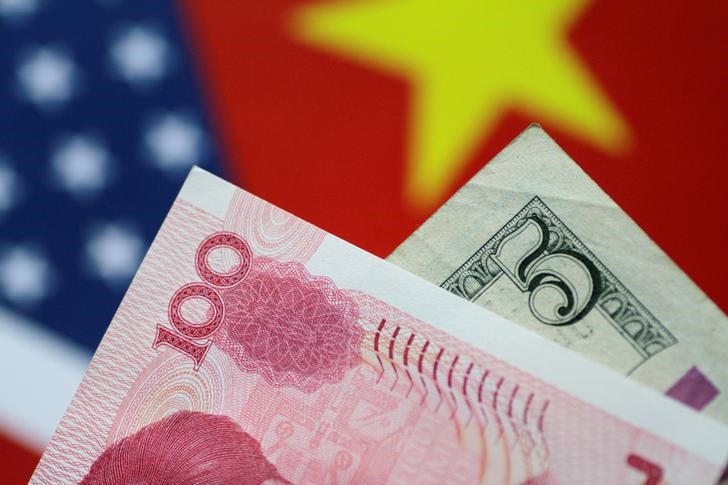By Ambar Warrick
Investing.com-- China’s yuan fell on Wednesday amid concerns that a power shortage in Sichuan could further dent industrial activity, while fears of a hawkish Federal Reserve weighed on broader Asian currencies.
The yuan fell 0.4% to 6.8612, coming close to a two-year low against the dollar. Reports of potential power cuts in industrial hub Shanghai weighed on the currency, as investors feared more headwinds to manufacturing activity after a series of COVID lockdowns this year.
The country is facing a severe heatwave, which has dried up some of its riverbeds and impacted regions dependent on hydroelectric power. Factories operated by Toyota Motors and Contemporary Amperex Technology Co in the Sichuan province were shut last week amid a power crunch.
The government has also announced power saving measures in other major cities including Beijing and Chongqing.
Still, the power shortage appears to be largely seasonal, and could improve with the passing of Summer.
But the power crunch comes at a time when the Chinese economy is already reeling from COVID-related shutdowns. Further headwinds to the industrial sector, which is already in contraction territory, could stall a recovery.
Most other Asian currencies retreated on Wednesday, while the dollar curbed recent losses after Minneapolis Fed President Neel Kashkari said the central bank is likely to keep tightening policy at a sharp pace until inflation is reined in.
The Japanese yen fell 0.1%, while the Singapore dollar and Taiwan dollar lost 0.2% each.
The U.S. dollar index rose after Kashkari’s comments, recouping some of Tuesday’s losses. A swathe of weak economic indicators had dented the greenback in the prior session.
Dollar index futures also rose slightly. Kashkari's comments echo hawkish stances from several other Fed members, which has drummed up expectations that the Fed will stick to its pace of interest rate hikes this year.
Focus now turns to Fed Chairman Jerome Powell’s address to the Jackson Hole Symposium this Friday, where the central banker is expected to provide more cues on the Fed’s plan to tighten monetary policy.
